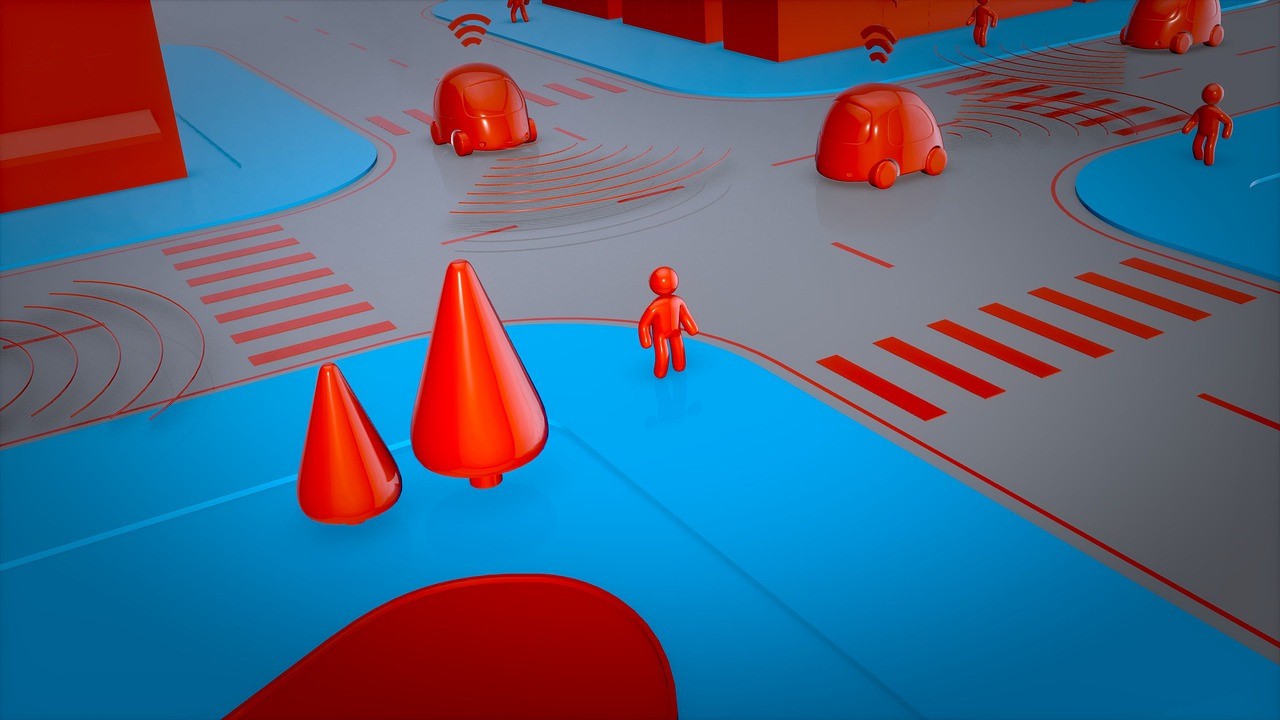FABRIC predicts that AI in Autonomous Vehicles will witness growth rate of 22.2% by 2023
Artificial Intelligence has taken the automotive industry by storm to drive the growth of level-4 and
level-5 autonomous vehicles. As per FABRIC the automotive AI market is expected to be valued at $13891 million in 2019 and expected to reach close to $30232 million
by 2023, at a CAGR of about 21.4%.
Autonomous vehicles are beginning to become a real possibility in Agriculture, transportation, and military industry. The time when we are going to look at
autonomous vehicles in everyday life for the routine user is rapidly approaching. The autonomous vehicle segment is the fastest growing segment in the automotive
industry. Many multinational companies are investing huge human and material capital in R&D of hardware and software that support this function. These include
components like lidars, cameras, sensors and the algorithms running behind them, must work closely together to achieve fully autonomous driving. Artificial
Intelligence is the most important and advanced component of self-driving vehicles. The total number of sensors with real time data and the need for intelligent
processing of the data can be tremendous.
There are numerous tasks for autonomous vehicles that are still exhibiting significant challenges and need to have modern approaches. Replacing the cognitive
and motor abilities of a human is not easy and will need continue work in progress for years to come. There are different tasks that AI needs to solve so that
we achieve reliable and safe autonomous drive.

Since AI has been used successfully in many areas, including robotics and this shows that AI technologies will provide a safer and more deterministic behavior
which will lead to benefits such as fuel efficiency, comfort, and convenience. But most of the countries that have started testing autonomous vehicles have not
yet provided a concrete regulatory guideline for such autonomous vehicles. There are still no guidelines or regulatory framework in which autonomous vehicles can
run independently.
Even though the governments of some countries, including the US, Japan, and Singapore showed interest in commercializing autonomous technologies, but it is still in a stage of development.
AI in Autonomous Vehicles are divided in 5 levels out of which we have successfully reaced level 3 and we are yet to have success in level 4 & 5:
Level 1: Driver ASSISTANCE -The vehicle characteristics have a single automated system. (E.g. it monitors speed through cruise control)
Level 2: Partial automation – ADAS the vehicle can perform steering and acceleration. The human still needs to monitor all tasks and can take control at any time
Level 3: Conditional Automation- Environmental detection abilities. The vehicle can perform most driving tasks, but human attention is still required.
Level 4: High Automation- The vehicle performs all driving task under specific circumstance. Still human care/attention is still an option
Level 5: Full automation – The vehicle performs all driving tasks under all condition. Zero human attention or interaction is required
Companies like Tesla, Uber, Lyft, Waymo, and the current automakers sense the competitive pressure are speeding up the emergence of autonomous tech. The hurry to create self-driving cars has fueled GM's $1 billion acquisition of Cruise, Uber buying Otto for $680 million, Ford’s $1 billion Argo Ai project, and Intel acquiring Mobileye for a massive $15.3 billion.
Investments:
In 2020, these were the investments that created key developments in this market.
For example:
- Ford to invest $1 billion in autonomous vehicle tech firm Argo AI
- Waymo raises $2.25 billion to scale up autonomous vehicle’s operations
- GM investing $3 billion to produce all-electric trucks, autonomous vehicles
- VW Group finalized its $2.6 billion investment in Argo AI
From Supply Side in AI technology providers we have companies such as NVIDIA (US), Intel (US), IBM (US), Microsoft (US), Xilinx (US), and Alphabet (US). From demand side companies like Tesla, BMW, Ford, Toyota, Daimler, Google, Volkswagen are investing in the AI software’s and components to bring in the best semi-autonomous or autonomous cars in the market
FABRIC has investigated AI in Autonomous Robots and offers 7! cross segments. Avira's market intelligence platform FABRIC has synchronized 235 high importance market
activities using Machine Learning and Data Science Algorithms. We would love to exchange our methodology, datasets, and observations on the quick demo of FABRIC.
About AviraInsights Technologies:
AviraInsights is a market intelligence company. We have synergised our strengths of Information Technology, Consulting and Market Research to build our proprietary platform that helps our clients in effective decision making. Driven by a vision to be a one-stop business partner to all the growth and expansion plans of its clients, AviraInsights has built an alliance base to make the Intelligence-data not just academic, but actionable. Understanding business in its entirety on the back of the decades of experience of the Management team, the company strives to empower its clients by providing an Access to research, Analysis of key dynamics, Evaluation of market data, Application of it to business objectives.
Contact Us:
Rohan S
5890 stoneridge Dr, suite 216,
Pleasanton CA 94588
Phone
Email :
Website :